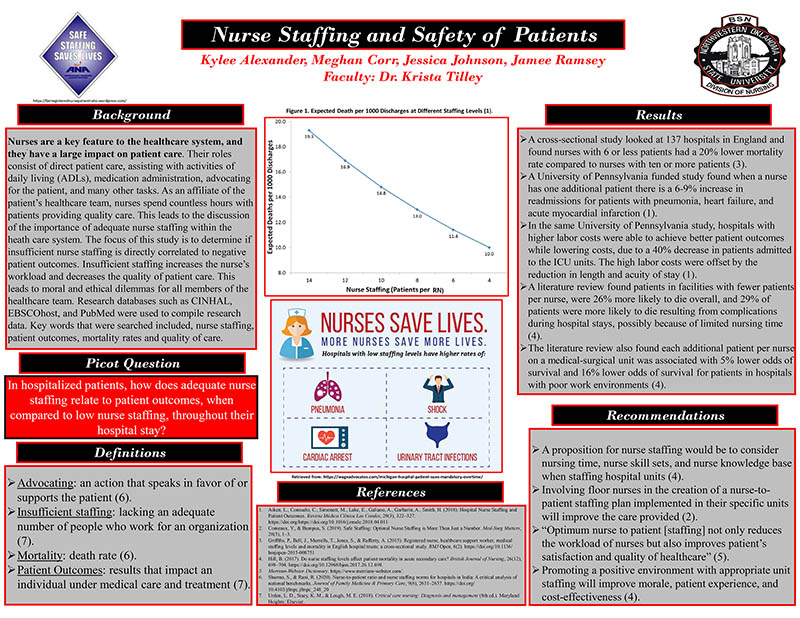
Hover to pan and click to magnify. Click again to pan at full screen.
Kylee Alexander, J. Johnson, J. Ramsey, M. Corr, and K. Tilley. Charles Morton Share Trust Division of Nursing, Northwestern Oklahoma State University, Alva, OK. Faculty Advisor, Dr. Leslie Collins, Northwestern Oklahoma State University, Alva, OK.
Kylee Alexander, J. Johnson, J. Ramsey, M. Corr, and K. Tilley. Charles Morton Share Trust Division of Nursing, Northwestern Oklahoma State University, Alva, OK. Faculty Advisor, Dr. Leslie Collins, Northwestern Oklahoma State University, Alva, OK.
ABSTRACT
Nurses are a key feature in the health care system, and they have a large impact on patient care. Their roles consist of direct patient care, assisting with activities of daily living (ADLs), medication administration, advocating for their patients, and many other tasks. The purpose of this evidence-based project was to determine if adequate nurse staffing produced better patient outcomes. To answer this question, information was gathered from research databases such as CINHAL, EBSCOhost, and PubMed. Keywords that were searched included, nurse staffing, patient outcomes, mortality rates, and quality of care. The results showed that when nurse staffing was inadequate there were increased rates of mortality, readmissions, increased costs, and poor work environments. It was also found that when nurse staffing was increased there was a direct improvement in the quality of care, workplace morale, patient experiences, and more cost-effective units. This led to the conclusion that when adequate nurse staffing is a priority, there are improved patient outcomes throughout and after the patient’s hospital stay. The impact of this study is related to nurses and their patients. If units could adequately staff, it would result in improved patient safety, reduced mortality, improved work morel, and a reduction in overall costs both for the hospital and the patients.

DISQUS COMMENTS WILL BE SHOWN ONLY WHEN YOUR SITE IS ONLINE